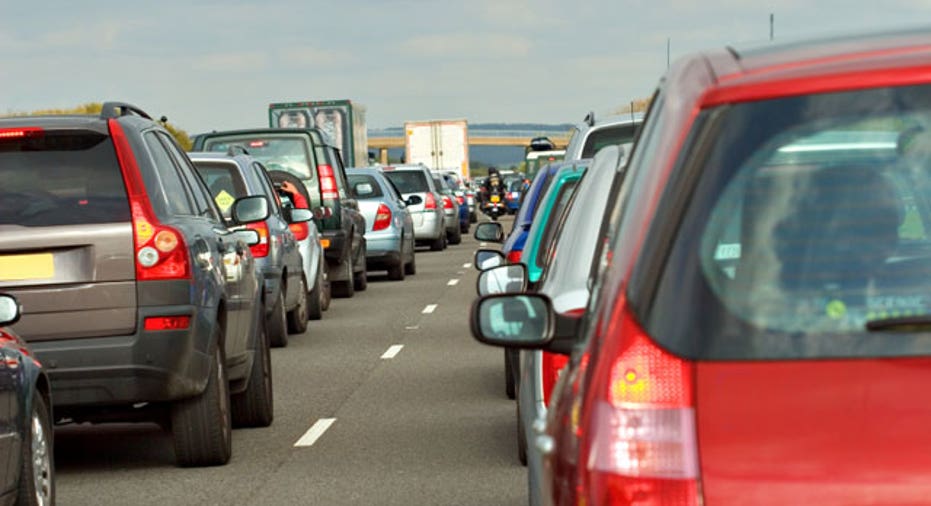Smartphone Apps Make Car Insurance Handier

The next time you need to handle a routine matter with your car insurance carrier, there's a good chance you can take care of it with your smartphone.
"Pretty much all of the major carriers have apps these days," says Alex Hageli, director of personal lines at the Property Casualty Insurers Association of America, an industry trade group. "They started a few years ago by offering checklists for what drivers should do immediately after they've been in an accident, but the features and functions have been expanded greatly."
Today, many of the car insurance mobile phone applications allow policyholders to get quotes, purchase a new policy, and handle other billing and administrative issues that previously required a phone call or written correspondence. Many of the smartphone apps also allow motorists to file claims if they've been in an accident, though Hageli points out that if it's more than a minor fender bender, the policyholder will likely always have to speak with an adjuster.
Most Car Insurance Apps Won't Cost You
The apps are "all about pure convenience," says Melissa O'Kane, e-commerce and mobile product manager for Esurance, a San Francisco-based insurer that offers versions of its app for the iPhone, Windows Phone and Android. Down the road, O'Kane says she expects to see insurance companies distinguishing themselves based on the quality of their mobile offerings.
In addition to apps from well-known carriers, such as Allstate, Progressive, State Farm and Geico, there also are independent smartphone apps, such as iWrecked and WreckMate, that can walk motorists through a post-accident checklist.
By and large, most of the apps are free. One example of a paid car insurance app is InsuranceTerms, which costs 99 cents and offers a glossary for drivers who want to better understand insurance lingo.
Just Show the Officer Your Smartphone
The smartphone apps are changing not only the way drivers deal with insurance issues but also how they observe motor-vehicle laws. Recently, Idaho and Arizona passed laws allowing motorists to use a mobile app or PDF on their phones to show an officer their required proof of insurance.
All of the insurance company apps contain a menu that displays the same information found on a paper insurance card. Smartphones allow users to store PDFs, but users may need to do a little research to figure out the mechanics of keeping their electronic proof of insurance in an easily accessible file.
"It's really about convenience and getting with the times," says Hageli, who is currently pressing legislatures in other states to amend their laws and follow the lead of Arizona and Idaho. "However, you don't have to use the app -- it's the driver's choice in the states that allow for digital proof of insurance."
But while shifting to mobile forms of proof may sound futuristic, it's really driven by financial concerns.
"Most people have the insurance, but for a variety of reasons, they forget to put their new card in their wallet," says Hageli. "In many states, just forgetting to change the card in your wallet can lead to a big fine, but even $1 would be too much, if you ask me."
He says it could be a couple of years before the laws switch to paperless proof from coast to coast, because each state has its own process.
Don't Abandon Paper Just Yet
While car insurance shifts into the digital age, drivers shouldn't be so quick to give up paper altogether, says Washington, D.C., personal injury attorney Thomas J. Simeone. He says it's a good idea to carry a paper backup in case your phone is damaged in an accident or you run low on batteries.
"(I'm) not sure that police officers will have as much comfort (initially) reading a phone as opposed to seeing an insurance card, so that may be another reason to have both, at least for the time being," Simeone adds.
Storing insurance information on a mobile app raises a few privacy and security issues. According to Hageli, legislators so far have been careful to include language stating that drivers who hand over a phone to show proof of insurance aren't authorizing police officers to search the other contents of the device.
In a related vein, some observers have expressed concern that lost or stolen phones may expose a driver's private information through the smartphone apps. But Hageli points out that with all the other sensitive information carried on phones these days, the particulars of a car insurance policy are probably the least of your worries if you lose your phone. And he says it's another good reason for smartphone owners to password-protect their devices.



















